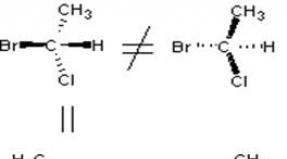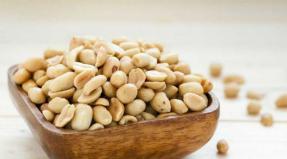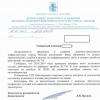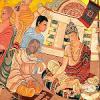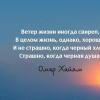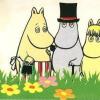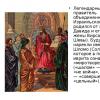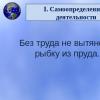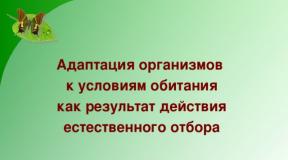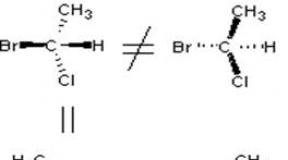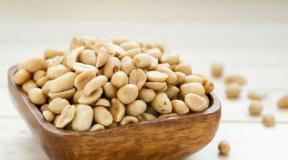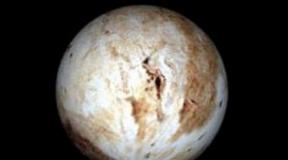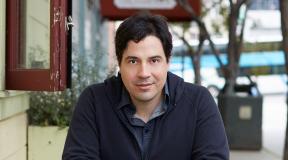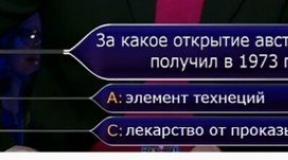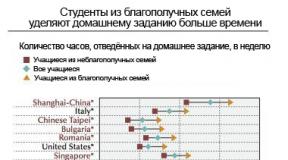Presentation on the topic of the beginning of the collapse of the ancient Russian state. Reasons for the collapse of the ancient Russian state. Monomakh becomes Grand Duke
Slide 2
Lesson objectives:
characterize the development of the Old Russian state in the second half of the 11th - early 12th centuries; consider the domestic and foreign policies of Vladimir Monomakh;
Slide 3
LESSON PLAN
Heirs of Yaroslav the Wise Lyubech Congress. The reign of Vladimir Monomakh.
Slide 4
Lesson objectives:
Get acquainted with the events of the history of the Old Russian state in the second half of the 11th - early 12th centuries; Characterize the personality of Vladimir Monomakh;
Slide 5
Basic Concepts
feudal fragmentation "fatherland"
Slide 6
KEY DATES AND EVENTS
1097 - Lyubech Congress of Princes 1111 - “crusade” against the Polovtsians 1113-1125. - reign of Vladimir Monomakh in Kyiv 1125-1132. - reign of Mstislav Vladimirovich (the Great)
Slide 7
Working with a document
Slide 8
TESTAMENT OF YAROSLAV THE WISE
“... if you live in love for each other, God will be with you and will subdue your enemies... If you live in hatred, in strife and civil strife, you will perish yourself and destroy the land of your fathers and grandfathers... but live in peace , listening to brother brother. So I instruct my eldest son and your brother Izyaslav to replace me at the capital in Kyiv; obey him, as you obeyed me, let him replace me for you; and to Svyatoslav I give Chernigov, and to Vsevolod Pereyaslavl, and to Igor Vladimir (southern), and to Vyacheslav Smolensk.” And so he divided the cities between them, forbidding them to cross the brotherly border..., he said to Izyaslav: “If anyone wants to offend his brother, you help the offended one.”
Slide 9
Questions and tasks
What does Yaroslav warn his sons against in his will? What information about the order of succession to the throne can we get from this source? What can be said about the role of the Kyiv prince in the organization of government, based on this source?
Slide 10
Yaroslavichy
YAROSLAV THE WISE VLADIMIR IZYASLAV SVYATOSLAV ROSTISLAV VSEVOLOD VYACHESLAV IGOR VLADIMIR VASILKO SVYATOPOLK OLEG DAVYD VLADIMIR MONOMAKH BORIS DAVYD
Slide 11
Vsevolod Izyaslav Oleg Vsevolod Izyaslav
Slide 12
such an order of succession to the throne is called (HORIZONTAL) regular
Slide 13
“Polovtsy” is the Russian name for the Kipchaks, who came from Central Asia and conquered the steppe spaces to the Urals in the middle of the 11th century. This name supposedly came from the Russian word “polova” - straw, since the hair of these nomads was straw-colored. Cumans
Slide 14
khans tribal unions strict discipline worshiped the wolf
Slide 15
1061 - Polovtsian hordes first attacked Russian lands 1092 - Polovtsians ravaged many villages on both banks of the Dnieper 1093 - Polovtsians again invaded Rus'.
Slide 16
1094 - Oleg Svyatoslavovich invited the Polovtsian hordes to Rus' and expelled Vladimir Monomakh from Chernigov to Pereyaslavl. 1095 - Monomakh and Svyatopolk joined forces to fight the Polovtsian invasion. The Polovtsians weakened their pressure on the Russian lands for some time.
Slide 17
LYUBECH CONGRESS 1097
Slide 18
Working with a document
Slide 19
“... Our villages and our cities were deserted... they burned villages and threshing floors, burned many churches with fire... the land was tortured, some were taken into captivity, others were killed, accepting a bitter death, others trembled, looking at those being killed, others died from hunger and thirst... the cities were all empty, the villages were empty; Let's cross the fields where herds of horses, sheep and oxen grazed; everything is empty now; We see overgrown fields that have become the home of animals...”
Slide 20
Questions and tasks
1. Think about who should have supported the convening of the Lyubech Congress? 2. What were the reasons and goals for convening the congress of princes in Lyubech?
Slide 21
Working with a document
Slide 22
Lyubech Congress
“In the summer of 1097. Svyatopolk, and Vladimir, and David Igorevich, and Vasilko Rostislavich, and Davyd Svyatoslavich, and his brother Oleg came and gathered in Lyubech to establish peace (among themselves). And they turned to themselves, saying: “Why are we destroying the Russian land, creating enmity against ourselves, while the Polovtsians are tearing our land apart and rejoicing that there are wars between us to this day. From now on, we will unite into one heart and protect the Russian lands. Let everyone keep his homeland... and on that they kissed the cross: if anyone goes against anyone (in war), then we will all be against him...", and, having taken an oath, they went their separate ways..."
Slide 23
Questions and tasks
Explain the words: “Let everyone keep his homeland.” What obligations did the princes who took part in the congress undertake? What was the significance of the Lyubech Congress of Princes? How did he change the position of the appanage princes?
Slide 24
However, peace did not reign in Rus' for long: one of Yaroslav’s grandsons, Davyd Igorevich, slandered Monomakh and Vasilko Rostislavich before Svyatopolk. Vasilko was captured and blinded. Vladimir Monomakh punished those who violated the Lyubech Treaty.
Slide 25
1111 – “crusade” against the Cumans.
Slide 26
"Collection of information"
Drawing up a political portrait of the statesman Vladimir Monomakh
Slide 27
Questions and tasks
What information about the childhood and upbringing of Vladimir Monomakh did we obtain from these documents? How do they characterize this statesman? What role did Vladimir Monomakh play in the confrontation between Rus' and the Polovtsians? What actions characterize Vladimir Monomakh as a wise ruler and statesman? How does his “Teaching” characterize this statesman? What information about the morals of the inhabitants of Kievan Rus can we glean from this document? What assessment do various scientists give of the role of Vladimir Monomakh in Russian history? Which point of view do you agree with and why?
Slide 28
Characteristics of the historical figure Vladimir Monomakh:
Memo for assessing a politician: What class or group did he represent? What did you want to achieve? What methods did you use to achieve your goals? Your personal attitude towards him.
Slide 29
Homework
§ 5, tasks on cards. Written work on the topic: Characteristics of the historical figure Vladimir Monomakh. Memo for assessing a politician: What class or group did he represent? What did you want to achieve? What methods did you use to achieve your goals? Your personal attitude towards him.
View all slides
HISTORY OF RUSSIA (OS “School 2100”)
6th grade, lesson No. 42
Subject:
The beginning of the collapse of the Old Russian state

GOALS AND OBJECTIVES OF THE LESSON
1–2 lines of development. Picture of the world in facts and concepts.
Using facts, form an idea about the beginning of the process of fragmentation in Rus', the influence of the Polovtsian invasions on its acceleration. Strengthen the ability to use historical concepts: state, dynasty, grand duke, fiefdom, fragmentation .
3rd line of development. Historical thinking.
Determination of the patterns of development of Rus' that led to fragmentation.
4–5 lines of development. Moral and civil-patriotic self-determination.
Create conditions for understanding the role of the personalities of the sons and grandsons of Yaroslav the Wise in Russian history; reasons for people's love for Vladimir Monomakh.
Maslennikova G.V., teacher of history and social studies, MBOU "Secondary School No. 2", Usolye-Sibirskoye, Irkutsk region

Creating a problematic situation
What kind of relationships develop between Russian princes?
The relationship is friendly
Relations between the princes are neutral
The relations between the princes are hostile
Hostile relations developed between the princes
Maslennikova G.V., teacher of history and social studies, MBOU "Secondary School No. 2", Usolye-Sibirskoye, Irkutsk region

Creating a problematic situation
Using the diagram, determine how the Russian princes mentioned in the text were related to each other.
Distant relationship
Close relationship
Not related
Russian princes are close relatives
Maslennikova G.V., teacher of history and social studies, MBOU "Secondary School No. 2", Usolye-Sibirskoye, Irkutsk region

Creating a problematic situation
On the one side - Hostile relations developed between the princes.
With another – Russian princes are close relatives.
Maslennikova G.V., teacher of history and social studies, MBOU "Secondary School No. 2", Usolye-Sibirskoye, Irkutsk region

Lesson problem:
Why did fratricidal wars and strife begin in Rus'?
Maslennikova G.V., teacher of history and social studies, MBOU "Secondary School No. 2", Usolye-Sibirskoye, Irkutsk region

Lesson Plan
1. Three sons of Yaroslav
2. Rus' and the “Polovtsian land”
3. Infighting between Yaroslav’s grandchildren
Maslennikova G.V., teacher of history and social studies, MBOU "Secondary School No. 2", Usolye-Sibirskoye, Irkutsk region

LET'S REMEMBER WHAT WE KNOW
Place the dates correctly on the time line.
882 -
the unification of Kyiv and Novgorod into a single ancient Russian state, Kievan Rus, under the rule of Oleg.
988 -
Baptism of Rus' by Prince Vladimir Svyatoslavich .
1072 -
"The Yaroslavich Truth"
Maslennikova G.V., teacher of history and social studies, MBOU "Secondary School No. 2", Usolye-Sibirskoye, Irkutsk region

Civilization
Signs
Large community of people
Civilization
The emergence of cities
Stage of development of society
Features of farming
Creation of states
Division of people into social strata
Ideas about good and evil, beautiful and ugly
Invention of writing
Government
Cultural and religious traditions
Several nations and states
Relationship between people
Maslennikova G.V., teacher of history and social studies, MBOU "Secondary School No. 2", Usolye-Sibirskoye, Irkutsk region

LET'S REMEMBER WHAT WE KNOW
"state"
customs
certain
management
people
self-name
organization
which
society
unites
territories
reside
Maslennikova G.V., teacher of history and social studies, MBOU "Secondary School No. 2", Usolye-Sibirskoye, Irkutsk region

LET'S REMEMBER WHAT WE KNOW
Boyars
the most noble and privileged inhabitants of Rus', landowners-votchinniks; As a rule, they performed military and government service.
Dynasty -
a series of successively reigning monarchs from the same family, replacing each other by the right of kinship and the law of succession to the throne.
Patrimony -
a type of land ownership (paternal ownership) that was inherited in one family from father to son.
Maslennikova G.V., teacher of history and social studies, MBOU "Secondary School No. 2", Usolye-Sibirskoye, Irkutsk region

LET'S REMEMBER WHAT WE KNOW
Squad -
associations of warriors (friends of the prince) that formed around the princes, who served the king, making war their profession, and lived off the spoils of war, distributed by the prince, as well as from the prince’s income (tribute).
Prince -
an elected military leader of a Slavic tribe, subsequently - the title of hereditary head of state - principality.
Grand Duke -
The title of the supreme ruler of the state adopted in Rus'.
Maslennikova G.V., teacher of history and social studies, MBOU "Secondary School No. 2", Usolye-Sibirskoye, Irkutsk region

LET'S REMEMBER WHAT WE KNOW
State fragmentation -
a state in which a single state is divided into many independent ones, but at the same time the memory of the unity of the country is preserved: as a rule, a common name, a special title of the head of state (without real power), the significance of the old capital, a common language, customs, culture, religion of the inhabitants.
Maslennikova G.V., teacher of history and social studies, MBOU "Secondary School No. 2", Usolye-Sibirskoye, Irkutsk region

LET'S REMEMBER WHAT WE KNOW
When and how was the Old Russian state created? (§ 4)
862 - the Varangian prince Rurik was called to reign in Novgorod.
According to legend, in 862, the residents of Novgorod, who had quarreled with each other, invited a ruler from across the sea who would suit everyone: “Our land is great and abundant, but there is no order in it. Come reign and rule over us."
Maslennikova G.V., teacher of history and social studies, MBOU "Secondary School No. 2", Usolye-Sibirskoye, Irkutsk region

LET'S REMEMBER WHAT WE KNOW
What made Prince Igor famous in Russian history?
He introduced polyudye from the subject lands (princely detour of the subject lands).
What made Princess Olga famous in Russian history?
1. Replaced the ancient polyudye with a real state tax.
2. For each city and each community, the exact amount of tribute (lessons) was established and places were determined - graveyards, where it should be taken and handed over to the grand ducal servants.
3. Avenged the death of her husband Igor
Maslennikova G.V., teacher of history and social studies, MBOU "Secondary School No. 2", Usolye-Sibirskoye, Irkutsk region

LET'S REMEMBER WHAT WE KNOW
What made Prince Svyatoslav famous in Russian history?
When going on a campaign, he sent a messenger to the enemy with a warning: “I’m coming against you!”
At the hour of battle, the prince addressed the wars with the words: “We will not disgrace the Russian land!”, skillfully led the squad and himself went into battle in the front ranks.
In 964-967, Svyatoslav defeated the Khazar Khaganate. The path along the Volga was opened for Russian merchants
Maslennikova G.V., teacher of history and social studies, MBOU "Secondary School No. 2", Usolye-Sibirskoye, Irkutsk region

LET'S REMEMBER WHAT WE KNOW
What made Prince Vladimir Svyatoslavovich famous in Russian history?
People remember him as a kind and fair prince, Red Sun. All the East Slavic tribes and many of their closest neighbors were gathered under the rule of the Kyiv prince. From those close to the prince, posadniks (local rulers) were appointed to the cities, who administered justice on behalf of the prince and collected tribute. “Straight” roads were laid from the capital Kyiv in different directions. An important task of the prince was the defense of the southern borders of the Russian land from Pecheneg raids. Since 988, Orthodox Christianity has become the state religion of Rus'.
Maslennikova G.V., teacher of history and social studies, MBOU "Secondary School No. 2", Usolye-Sibirskoye, Irkutsk region

LET'S REMEMBER WHAT WE KNOW
What made Prince Yaroslav the Wise famous in Russian history?
The prince valued education and erudition. During the 35 years of his reign, he earned the nickname of the “wise” ruler. Under him, the Old Russian state became the largest in Europe. He established the “Truth of the Yaroslavichs” for the Novgorod land, then he supplemented this code with new laws. Under Yaroslav, new churches and monasteries were built using princely funds. The reign of Yaroslav the Wise is considered the heyday of the Old Russian state.
Maslennikova G.V., teacher of history and social studies, MBOU "Secondary School No. 2", Usolye-Sibirskoye, Irkutsk region

Evaluate your work
1. What was the task?
2. Were you able to complete it?
5 / 4 / 3
Maslennikova G.V., teacher of history and social studies, MBOU "Secondary School No. 2", Usolye-Sibirskoye, Irkutsk region

Updating knowledge
What is strife?
An armed struggle for power in one principality or for the formation of an independent principality.
What are the usual consequences of strife?
Weakening of the country.
Assignment: listen carefully to the story and answer questions about it
Maslennikova G.V., teacher of history and social studies, MBOU "Secondary School No. 2", Usolye-Sibirskoye, Irkutsk region

Maslennikova G.V., teacher of history and social studies, MBOU "Secondary School No. 2", Usolye-Sibirskoye, Irkutsk region

Finding a solution to the problem
What conditions for the quarrel between the princes and the violation of the will of Yaroslav the Wise were created by the “ladder” order of transfer of power?
1. Confusion of the order of inheritance upon the death of princes.
2. The desire of the inhabitants of each inheritance for the prince to remain with them permanently.
What role did the Cuman invasions play in the history of Rus'?
The Polovtsian invasion undermined state order and intensified the enmity of the princes.
Maslennikova G.V., teacher of history and social studies, MBOU "Secondary School No. 2", Usolye-Sibirskoye, Irkutsk region

Finding a solution to the problem
What conditions of Yaroslav the Wise's will pushed the princes to quarrels and disruption of order?
Why did the staircase order of transfer of princely power not suit the inhabitants of various Russian lands?
It was beneficial for the inhabitants of the lands for the prince to remain with them permanently, to protect them, and not to move to other lands.
Maslennikova G.V., teacher of history and social studies, MBOU "Secondary School No. 2", Usolye-Sibirskoye, Irkutsk region

Finding a solution to the problem
Why did strife arise between the princes?
1. The inheritances were unequal, which could cause the princes to envy each other.
2. Some of the princes could become outcasts - lose their inheritance in Rus'.
Maslennikova G.V., teacher of history and social studies, MBOU "Secondary School No. 2", Usolye-Sibirskoye, Irkutsk region

Evaluate your work
1. What was the task?
2. Were you able to complete it?
3. Did you do it correctly or with an error (compare with the sample)?
4. Did you do it yourself or with help?
5. What mark can you give yourself (remember how they differ)?
5 / 4 / 3
Maslennikova G.V., teacher of history and social studies, MBOU "Secondary School No. 2", Usolye-Sibirskoye, Irkutsk region

Finding a solution to the problem
Read § 8, paragraph 3 and answer the question.
Maslennikova G.V., teacher of history and social studies, MBOU "Secondary School No. 2", Usolye-Sibirskoye, Irkutsk region

Finding a solution to the problem
Position
I believe that, on the one hand, the decisions of the Lyubech Congress can be considered the collapse of the state
Argument
because,
the prince received as an inheritance
sovereignty of “one’s fatherland” is essentially an independent state – a principality.
Maslennikova G.V., teacher of history and social studies, MBOU "Secondary School No. 2", Usolye-Sibirskoye, Irkutsk region

Finding a solution to the problem
Position
I believe that, on the other hand, the decisions of the Lyubech Congress cannot be considered a collapse of the state
Argument
because,
in the common possession of all
The princes remained in Kyiv, which they occupied as before according to seniority. The princes managed to agree on joint actions against a common enemy - the nomadic Polovtsians. Vladimir Monomakh, after the Lyubech Congress, managed to restore the power of the Grand Duke of Kyiv in all cities of Rus'.
Maslennikova G.V., teacher of history and social studies, MBOU "Secondary School No. 2", Usolye-Sibirskoye, Irkutsk region

Finding a solution to the problem
1. The inheritances were unequal, which could cause the princes to envy each other.
2. The ladder of succession to the throne was confusing.
3. The Polovtsian invasion undermined state order and intensified the enmity of the princes.
4. The decisions of the Lyubech Congress of Princes on the division of Rus' into hereditary principalities - fatherland - brought closer the collapse of the Old Russian state.
Maslennikova G.V., teacher of history and social studies, MBOU "Secondary School No. 2", Usolye-Sibirskoye, Irkutsk region

FIXING
RECEIVED ON
KNOWLEDGE LESSON
Maslennikova G.V., teacher of history and social studies, MBOU "Secondary School No. 2", Usolye-Sibirskoye, Irkutsk region

Exercise: Place the dates on the time line correctly.
1072
1125
1113
1097
Exercise: Put the corresponding events under the dates.
1072
1097
1113
1125
Death of Vladimir Monomakh
"Russian Truth" by Yaroslavich
Monomakh becomes Grand Duke
Lubechesky Congress
Maslennikova G.V., teacher of history and social studies, MBOU "Secondary School No. 2", Usolye-Sibirskoye, Irkutsk region

Ability to locate an event in the past
Exercise: Correctly correlate the events of the history of Rus' with the times of the reign of different princes.
Prince
Rurik
Events or phenomena of history
Vladimir I
Yaroslav the Wise
Vladimir Monomakh
Baptism of Rus'
Calling to reign
"Russian Truth"
Lyubechsky Congress of 1097
Maslennikova G.V., teacher of history and social studies, MBOU "Secondary School No. 2", Usolye-Sibirskoye, Irkutsk region

Ability to determine cause and effect
Exercise: arrange events and phenomena in the correct sequence.
The desire of the boyars and princes of individual lands not to pay tribute to Kyiv
Development of patrimonial farms of the boyars of individual Russian lands
Increase in the number of foreign raids on Russian lands
Strife between princes
Maslennikova G.V., teacher of history and social studies, MBOU "Secondary School No. 2", Usolye-Sibirskoye, Irkutsk region

Maslennikova G.V., teacher of history and social studies, MBOU "Secondary School No. 2", Usolye-Sibirskoye, Irkutsk region

Maslennikova G.V., teacher of history and social studies, MBOU "Secondary School No. 2", Usolye-Sibirskoye, Irkutsk region

Maslennikova G.V., teacher of history and social studies, MBOU "Secondary School No. 2", Usolye-Sibirskoye, Irkutsk region
summary of other presentations“The fragmentation of Rus' in the 12th-13th centuries” - The struggle for power. Sons. Throne in Suzdal. Think about it. Principality. Kyiv. Vladimir-Suzdal land. Galicia-Volyn principality. The clash between the princes and the boyars. Foundation of Moscow. Princes.
“Kievan Rus 12-13 centuries” - View of the Moscow River. Our Lady of Vladimir. Konstantin Vsevolodovich (1186–1218). The first mention of Moscow (according to the Ipatiev Chronicle). Yuri Vsevolodovich (1188–1238). Andrey Bogolyubsky (1111 – 1174). Yury Dolgoruky. North-Eastern Rus' at the beginning of the XII - beginning of the XIII century. Vsevolod the Big Nest (1154–1212). Construction of the Moscow Kremlin under Yuri Dolgoruky. Rostov. Assumption Cathedral in Vladimir. Church of the Intercession on the Nerl.
“The period of feudal fragmentation in Rus'” - Daniil (Romanovich) Galitsky. Russian land. Prince Andrei Bogolyubsky. Vladimir-Suzdal Principality. Consequences. Prince Vsevolod. Rus' during the period of feudal fragmentation. Galicia-Volyn principality. Administration of the Novgorod Boyar Republic. Early period. Lyubech Congress. Prince Yuri Dolgoruky. Principalities of Rus'. Principality management. The main branch of the economy. Velikiy Novgorod. He strove for church independence.
“Fragmentation of the Old Russian State” - Russian Chronicles. Izyaslav Yaroslavich. Kiev uprising. Administration of Novgorod. Leading principalities. Vladimir-Suzdal Principality. Novgorod trade. Civil strife. Kyiv throne. Vladimir Icon of the Mother of God. Family of Rurikovich. Lyubech Congress of Princes. Murder of Andrei Bogolyubsky. Vyatichi. The fourth son of Yaroslav the Wise. Causes of feudal fragmentation. Grandfather of Vladimir Vsevolodovich. Vladimir Monomakh.
“The beginning of the collapse of the Old Russian state” - The beginning of the collapse of the Old Russian state. Polovtsian hordes. Collection of information. Live in love for each other. Tribal unions. Our villages are empty. Development of the Old Russian state. Let everyone keep his homeland. Who should have supported the convening of the Lyubech Congress. Yaroslavichy. Heirs of Yaroslav the Wise. Working with a document. Oleg Svyatoslavovich. Get acquainted with the events of the history of the Old Russian state.
“The time of feudal fragmentation” - Novgorod Republic. Characteristic features of the period of fragmentation. Constant raids of the Polovtsians. Write down the pros and cons of the period of feudal fragmentation. Features of the period. Novgorod control system. Andrey Bogolyubsky. Determine what the documents are talking about. Vladimir-Suzdal land. Oleg. Consider the proposed schemes. The period of feudal fragmentation. Causes of feudal fragmentation in Rus'.
“Political fragmentation of Rus'” - Location: from the Gulf of Finland to the Urals, from the Arctic Ocean to the upper reaches of the Volga. Main political centers. What year is the first mention of Moscow? Political fragmentation. Feature: the lands are unsuitable for agriculture. On the southern borders of Rus', the Polovtsians invaded the Black Sea region from Asia.
“Fragmentation of Kievan Rus” - What are the negative aspects of fragmentation in Rus'? Consequences of feudal fragmentation in Rus'. Kievan Rus under Yaroslavich. Izyaslav-Kyiv, Svyatoslav-Chernigov, Vsevolod - Pereyaslavl. The beginning of feudal fragmentation in Rus'. The sons of Yaroslav received Russian lands. What is feudal fragmentation?
“The time of feudal fragmentation” - Write down the pros and cons of the period of feudal fragmentation. Give the date of the events. The concept of "fragmentation". Territory. Vladimir Monomakh. Novgorod control system. Features of the period. Vladimir-Suzdal land. Determine what the documents are talking about. Oleg. Causes of feudal fragmentation in Rus'.
“Political fragmentation in Rus'” - Plan for studying new material: The veche was public. Centripetal forces remained, which constantly opposed centrifugal forces. The political collapse of Rus' was never complete: Political fragmentation of Rus': causes, influence on the course of the country’s history. At the meeting, the mayor, thousand, and archbishop were elected.
“The period of feudal fragmentation in Rus'” - Principalities of Rus'. Prince Yuri Dolgoruky. Early period. Prince Andrei Bogolyubsky. Causes. Administration of the Novgorod Boyar Republic. Daniil (Romanovich) Galitsky. He strove for church independence. Nomad raids. Lyubech Congress. Consequences. Historical period. The main branch of the economy.
“Fragmentation of Rus'” - Rostislav’s flight to Tmutarakan. Vladimir. Stopping Polovtsian raids. The meaning of fragmentation. The uprising of 1113 and the great reign of Vladimir Monomakh. Rostislav (outcast). Igor. Death of Rostislav in 1067. Transition from shifting agriculture to two-field farming. Gleb. Natural economy? Negotiations between Izyaslav and Vseslav.
There are 15 presentations in total
Read also...
- Presentation on the topic "King Solomon" Biography, myths and legends
- Plains What questions arise
- Reasons for the collapse of the ancient Russian state
- Presentation "Adaptation of organisms to living conditions as a result of natural selection" presentation for a biology lesson (9th grade) on the topic
